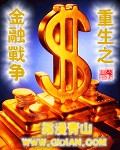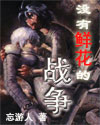战争与和平(下)-第16部分
按键盘上方向键 ← 或 → 可快速上下翻页,按键盘上的 Enter 键可回到本书目录页,按键盘上方向键 ↑ 可回到本页顶部!
————未阅读完?加入书签已便下次继续阅读!
rsations together at Vienna; and by these conversations made nations happy or unhappy。 All at once the diplomatists and monarchs all but quarrelled; they were on the point of again commanding their armies to kill one another; but at that time Napoleon entered France with a battalion; and the French; who had been hating him; at once submitted to him。 But the allied monarchs were angry at this; and again went to war with the French。 And the genius; Napoleon; was conquered; and suddenly recognising that he was a brigand; they took him to the island of St。 Helena。 And on that rock the exile; parted from the friends of his heart; and from his beloved France; died a lingering death; and bequeathed all his great deeds to posterity。 And in Europe the reaction followed; and all the sovereigns began oppressing their subjects again。’’
It would be quite a mistake to suppose that this is mockery—a caricature of historical descriptions。 On the contrary; it is a softened…down picture of the contradictory and random answers; that are no answers; given by all history; from the compilers of memoirs and of histories of separate states to general histories; and the new sort of histories of the culture of that period。
What is strange and comic in these answers is due to the fact that modern history is like a deaf man answering questions which no one has asked him。
If the aim of history is the description of the movement of humanity and of nations; the first question which must be answered; or all the rest remains unintelligible; is the following: What force moves nations? To meet this question modern history carefully relates that Napoleon was a very great genius; and that Louis XIV。 was very haughty; or that certain writers wrote certain books。
All this may very well be so; and humanity is ready to acquiesce in it; but it is not what it asks about。 All that might be very interesting if we recognised a divine power; based on itself and always alike; guiding its peoples through Napoleons; Louis’; and writers; but we do not acknowledge such a power; and therefore before talking about Napoleons; and Louis’; and great writers; we must show the connection existing between those persons and the movement of the nations。 If another force is put in the place of the divine power; then it should be explained what that force consists of; since it is precisely in that force that the whole interest of history lies。
History seems to assume that this force is taken for granted of itself; and is known to every one。 But in despite of every desire to admit this new force as known; any one who reads through very many historical works cannot but doubt whether this new force; so differently understood by the historians themselves; is perfectly well known to every one。
Chapter 2
WHAT is the force that moves nations?
Biographical historians; and historians writing of separate nations; understand this force as a power residing in heroes and sovereigns。 According to their narratives; the events were entirely due to the wills of Napoleons; of Alexanders; or; generally speaking; of those persons who form the subject of historical memoirs。 The answers given by historians of this class to the question as to the force which brings about events are satisfactory; but only so long as there is only one historian for any event。 But as soon as historians of different views and different nationalities begin describing the same event; the answers given by them immediately lose all their value; as this force is understood by them; not only differently; but often in absolutely opposite ways。 One historian asserts that an event is due to the power of Napoleon; another maintains that it is produced by the power of Alexander; a third ascribes it to the influence of some third person。 Moreover; historians of this class contradict one another even in their explanation of the force on which the influence of the same person is based。 Thiers; a Bonapartist; says that Napoleon’s power rested on his virtue and his genius; Lanfrey; a Republican; declares that it rested on his duplicity and deception of the people。 So that historians of this class; mutually destroying each other’s position; at the same time destroy the conception of the force producing events; and give no answer to the essential question of history。
Writers of universal history; who have to deal with all the nations at once; appear to recognise the incorrectness of the views of historians of separate countries as to the force that produces events。 They do not recognise this force as a power pertaining to heroes and sovereigns; but regard it as the resultant of many forces working in different directions。 In describing a war on the subjugation of a people; the writer of general history seeks the cause of the event; not in the power of one person; but in the mutual action on one another of many persons connected with the event。
The power of historical personages conceived as the product of several forces; according to this view; can hardly; one would have supposed; be regarded as a self…sufficient force independently producing events。 Yet writers of general history do in the great majority of cases employ the conception of power again as a self…sufficient force producing events and standing in the relation of cause to them。 According to their exposition now the historical personage is the product of his time; and his power is only the product of various forces; now his power is the force producing events。 Gervinus; Schlosser; for instance; and others; in one place; explain that Napoleon is the product of the Revolution; of the ideas of 1789; and so on; and in another plainly state that the campaign of 1812 and other events not to their liking are simply the work of Napoleon’s wrongly directed will; and that the very ideas of 1789 were arrested in their development by Napoleon’s arbitrary rule。 The ideas of the Revolution; the general temper of the age produced Napoleon’s power。 The power of Napoleon suppressed the ideas of the Revolution and the general temper of the age。
This strange inconsistency is not an accidental one。 It confronts us at every turn; and; in fact; whole works upon universal history are made up of consecutive series of such inconsistencies。 This inconsistency is due to the fact that after taking a few steps along the road of analysis; these historians have stopped short halfway。
To find the component forces that make up the composite or resultant force; it is essential that the sum of the component parts should equal the resultant。 This condition is never observed by historical writers; and consequently; to explain the resultant force; they must inevitably admit; in addition to those insufficient contributory forces; some further unexplained force that affects also the resultant action。
The historian describing the campaign of 1813; or the restoration of the Bourbons; says bluntly that these events were produced by the will of Alexander。 But the philosophic historian Gervinus; controverting the view of the special historian of those events; seeks to prove that the campaign of 1813 and the restoration of the Bourbons was due not only to Alexander; but also to the work of Stein; Metternich; Madame de Sta?l; Talleyrand; Fichte; Chateaubriand; and others。 The historian obviously analyses the power of Alexander into component forces。 Talleyrand; Chateaubriand; and so on; and the sum of these component forces; that is; the effect on one another of Chateaubriand; Talleyrand; Madame de Sta?l; and others is obviously not equal to the resultant effect; that is; the phenomenon of millions of Frenchmen submitting to the Bourbons。 Such and such words being said to one another by Chateaubriand; Madame de Sta?l; and others; only affects their relation to one another; and does not account for the submission of millions。 And therefore to explain how the submission of millions followed from their relation to one another; that is; how from component forces equal to a given quantity A; there followed a resultant equal to a thousand times A; the historian is inevitably bound to admit that force of power; which he has renounced; accepting it in the resultant force; that is; he is obliged to admit an unexplained force that acts on the resultant of those components。 And this is just what the philosophic historians do。 And consequently they not only contradict the writers of historical memoirs; but also contradict themselves。
Country people who have no clear idea of the cause of rain say: The wind has blown away the rain; or the wind is blowing up for rain; according as they are in want of rain or of fair weather。 In the same way; philosophic historians at times; when they wish it to be so; when it fits in with their theory; say that power is the result of events; and at times; when they want to prove something else; they say power produces the events。
A third class of historians; the writers of the so…called history of culture; following on the lines laid down by the writers of universal history who sometimes accept writers and ladies as forces producing events; yet understand that force quite differently。 They see that force in so…called culture; in intellectual activity。 The historians of culture are quite consistent as regards their prototypes—the writers of universal history—for if historical events can be explained by certain persons having said certain things to one another; why not explain them by certain persons having written certain books? Out of all the immense number of tokens that accompany every living phenomenon; these historians select the symptom of intellectual activity; and assert that this symptom is the cause。 But in spite of all their endeavours to prove that the cause of events lies in intellectual activity; it is only by a great stretch that one can agree that there is anything in common between intellectual activity and the movement of peoples。 And it is altogether impossible to admit that intellectual activity has guided the actions of men; for such phenomena as the cruel murders of the French Revolution; resulting from the doctrine of the equality of man; and the most wicked wars and massacres arising from the Gospel of love; do not confirm this hypothesis。
But even admitting that all the cunning







